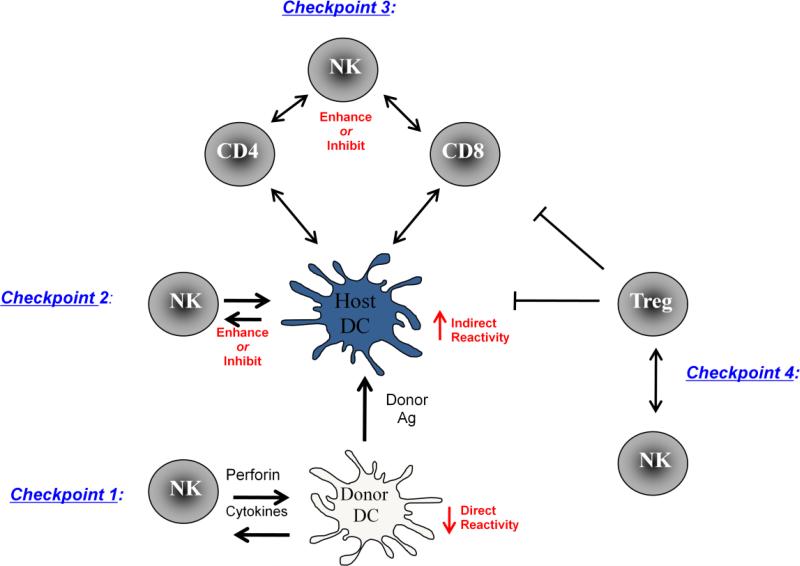Figure 1.
Major proposed checkpoints in NK cell-mediated impact on allograft immunity. As described in the text, we propose three key areas, or ‘checkpoints’ whereby NK cells positively or negatively impact T cell-dependent allograft immunity. (1) Checkpoint 1: NK cells can directly lyse donor DC resulting in blunted direct antigen (donor APC-dependent) presentation to host T cells and enhanced release of donor antigens acquired by host APC (indirect, or host-APC dependent presentation). (2) Checkpoint 2: NK cells can either augment or inhibit the capacity of host APC to direct donor-derived antigens to reactive T cell. (3) Checkpoint 3: NK cells can enhance or inhibit T cell reactivity through a direct interaction with activated T cells. (4) Checkpoint 4: NK cells and regulatory T cells (Treg) tend to cross-regulate one another to either promote or inhibit regulatory activity.

